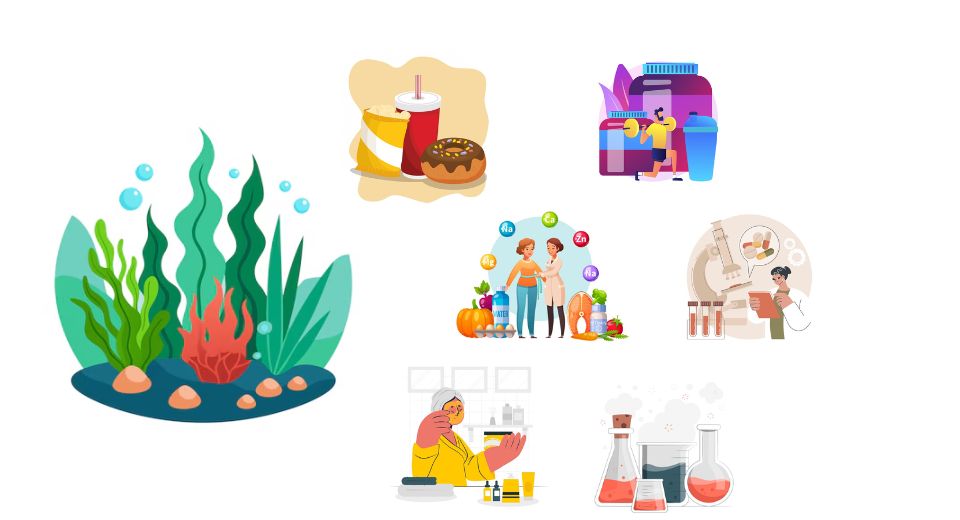
Jan 27, 2025

The Global Algae Product Market, according to Metastat Insight, has grown to become a significant segment in the global economy, and is under increasing scrutiny from businesses, researchers, and environmental advocates. Its growing industry owes its predominance to the versatility of algae, which can be applied in numerous applications in various sectors. From its role in dietary supplements and biofuels to its utility in cosmetics and agriculture, algae-based products have transformed industries by introducing sustainable alternatives to traditional resources. These products are not only seen as eco-friendly but also as a gateway to innovation that meets modern-day demands.
One of the most appealing aspects of algae lies in its natural abundance and rapid growth rate. Algae is known to be found both in freshwater and marine environments. It is thought to be one of the more efficient resources today because it uses minimal environmental footprint. Unlike many traditional crops, algae requires no arable land or immense amounts of water. This has helped foster interest in mass production, given the increasing discourse on sustainability and resource conservation on a global level. As demand for renewable resources continues to increase, algae-based products are emerging at the center of these discussions: businesses and governments alike are looking into using them to address some of the most relevant environmental issues.
The food and beverage industry considers algae to hold considerable nutritional value. It has captured the imagination of health-conscious people as a superfood due to its richness in essential nutrients, proteins, and omega-3 fatty acids. Spirulina and chlorella are the most popular kinds of edible algae, among which there is an extensive list of nutritional supplements. Beyond the health-promoting benefits that they bring to humans, spirulina and chlorella have become important and sustainable means for providing food and nutrients for an increasing number of global inhabitants. Whereas alga-based ingredients were consumer preferences related to plant and functional foods in the past and will continue this trend, today they play more and more dominant roles in food choices.
What is more interesting is that whereas algae do not stop at foods, they enter the cosmetics or personal care department. Algal extracts, found in skincare recipes, are significantly used for the hydration and also antioxidant properties for the skin, among other needs. Properties very natural for dermatological anti-aging and skin care. Incorporation of algae in cosmetics goes well with the rising demand from consumers for clean and natural formulation, though it has more reasons to be in the market. Additionally, the green aspect of algae production has also added a layer of appeal particularly amongst those brands that are committed to sustainability and environmental responsibility.
In agriculture, algae-derived products are emerging as alternatives to conventional fertilizers and animal feed. Algae-based biofertilizers increase soil health and crop yields, thus reducing the environmental impacts of chemical fertilizers. In addition, algae in animal feed improve the nutritional intake of livestock while lowering methane emissions, thus countering critical concerns in the agricultural sector. Such versatility points out that algae has the capability to fill gaps between different industries and make it a vital resource for sustainable development.
The main change of the algae product would be seen in the energy sector. The potential source of biofuel through algae could increase its interest for the researchers and companies looking forward to getting rid of fossil fuel usage. Not only does algae-based biofuels offer an opportunity for renewable energy, but also the emission of greenhouse gases decreases, an attractive solution for fighting climate change. Although problems still exist related to mass production and cost reduction, technological advancements are gradually making algae-based energy a more viable competitor.
While the algae product market has many positive benefits, it is still facing several major barriers that need to be overcome to ensure long-term growth. The main challenges continue to be production costs, technological limitations, and a lack of market awareness. However, constant research and development along with growing investments are likely to overcome these challenges in the future. Stakeholders from all walks of life, including industries, are now acknowledging the potential and are making all efforts to implement algae products in their business activities.
Further, the market’s advancement also mirrors the growing commitment to sustainability and innovation being led globally. As industries make a discovery of the capability of algae, aside from finding practical application, they are also doing their share in aiming for a more sustainable future. This confluence of function and environmental stewardship has made products aligned with algae an integral part of broader efforts at balancing economic growth with ecological preservation.
As shown by Metastat Insight, the algae product market is one such industry that is in development and has a possible potential to change many sectors. Due to its mass applicability and its green aspects, the focus on algae-based products is supposed to continue for a long time into the future. This market will only grow as the technologies get advanced further and as it develops to become more green.
Drop us an email at:
Call us on:
+1 214 613 5758
+91 73850 57479